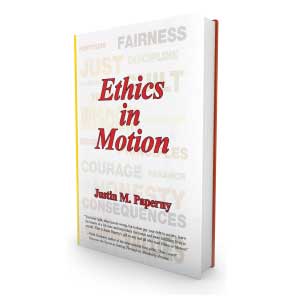Regretted choosing honesty, and why?
I learned a lot of lessons in federal prison. I share as many of them as I can in my book, Lessons From Prison. Still, the lessons keep coming and to the extent I can I want to share them. To that end, I answered a question on Quora.com that I wanted to share here. As an ethicist and as someone who has traveled the country lecturing on values and white collar crime, I find these types of questions fascinating and extremely practical. On the surface one would think that they would never regret choosing honesty. But as you will learn, federal prison presents dynamics that are different than normal society. For that reason, honesty, as bad as it may sound, is not always the best appraoch. I share why in my answer below.
When have you regretted choosing honesty, and why?
“I learned a lesson the hard way during my first week in federal prison. I wasn’t prepared for my surrender, so I made some foolish mistakes during my first weeks and even months.

When have you regretted choosing honesty, and why?
One of those mistakes was offering unsolicited honest advice to a long-term prisoner. While standing in line to go to the chow hall, I heard this long-term prisoner say something that did not make much sense. In fact, they were outright insane. Rather than keeping my mouth shut and turning the other way, I sought to correct him.
Federal prison can be very emasculating. We are separated from our families and are reliant on them to help subsidize our stay on the inside. For those reasons, and more, this prisoner took offense to my honesty, especially because I said it in front of others. Essentially, I was told that since I was a “short timer”, I was not in a position to offer advice to anyone.
At that moment, I’ve regretted speaking honestly to him.
It was a scenario where I was trying to help, but as a new prisoner trying to get adjusted, I should have simply kept my mouth shut. And that is what I did for the rest of my prison term. Weeks later when fellow prisoners questioned the existence of the Holocaust, I kept my mouth shut.
As I wrote in my second book, Ethics in Motion, Kant’s categorical imperative is better left in a textbook: it is not always applicable in real life situations.
Justin Paperny


Recent Comments